
Editor's note: The Top of the Morning staff is pleased to continue our week-long celebration of the Day of Remembrance with author David G. Woolley through the Jewish feast day on Monday, September 29th. Today's post centers around the events that took place on the hill where the golden plate record containing the text of the Book of Mormon lay buried for centuries. We hope you'll join us daily as we celebrate the Day of Remembrance.
Sometime this morning, one hundred eighty five years ago on Monday, September 22nd 1823, seventeen-year-old Joseph Smith Jr. left his father and brothers harvesting a stand of wheat and walked two miles south east of his log cabin home to the wooded slopes of this hillside overlooking Canandiagua road in Manchester Township, just across the county line from Palmyra Township. He also left behind his life as a farmer.
Neither Joseph Smith nor the angel Moroni gave the hill a name except to call it the “place where the record lay buried” and the “highest drumlin in the county”. Associates of Joseph Smith beginning with Oliver Cowdery named it Cumorah after a hill mentioned in the Book of Mormon text where the prophet Mormon anciently buried numerous records that had been entrusted to him before he turned the golden plate record over to his son Moroni prior to one of the final battles in Nephite history (Mormon 6:6).
The hill where the prophet Mormon buried numerous Nephite records is likely not the same hill pictured above where thirty six years later Mormon's son, Moroni, buried the golden plate record (Moroni 10:1-2). The Jaredites, 900 years earlier, gathered for battle at this same hill they called “the hill Ramah” (Either 15:11). The hill Cumorah was near where the Mulekites landed (Alma 22:30) and it was in the area the Nephites referred to as the narrow neck of land (Alma 22:32).
When Joseph Smith didn’t correct his associates with regard to the name of the hill where he unearthed the golden plate record containing the text of the Book of Mormon, the folk-name Cumorah gained popularity. The yearly pageant titled America’s Witness for Christ performed on the hill where Joseph Smith recovered the golden plate record is commonly referred to as the Hill Cumorah pageant, further blurring the distinction between the ancient hill mentioned in the Book of Mormon (Mormon 6:6) and the hill where Joseph Smith unearthed an ancient record written on golden plates.
On that morning in 1823 Joseph either forgot or disregarded the angel’s prohibition that, “he should have no other object in view in getting the plates but to glorify God.” Not twelve hours before arriving at the hill Joseph was warned by Moroni that because of the difficult financial situation of his family he was to avoid the temptation to “get the plates for the purpose of getting rich”. Dr. Terryl Givens suggests that Joseph may have forgotten the instructions (Terryl Givens, By the Hand of Mormon, Oxford University Press, 2002), but historian Richard Bushman indicates that the sight of golden metal plates and other valuable objects buried in the stone box was likely too great of a temptation for young Joseph to resist (Richard L. Bushman, Joseph Smith and the Beginnings of Mormonism, University of Illinois press, 1984).
Lucy Smith wrote that Joseph removed the plates from the hill and was then curious if other treasures remaining inside the stone box could be used to help alleviate the financial burdens of the smith family. Her account may be somewhat unreliable in that she attributes this event to Joseph’s second visit to the hill one year later in 1824 and she also mentions that he took the plates from the hill after which Moroni returned them to the stone box and then Joseph was thrown back by a powerful shock and prevented from taking the plates (Lucy Smith, Preliminary Manuscript, p. 83)
An account written by Oliver Cowdery supports Bushman’s observations that these events occured in 1823 on Joseph's first visit to the hill. Oliver Cowdery as well as his mother Lucy wrote that Joseph told them that he reached for the plates three times and each time received a severe shock that threw him back into the grass. When he cried out, “Why can I not obtain this book,” Moroni appeared and said, “Because you have not kept the commandments of the Lord”. Oliver Cowdery records that Joseph was then given a vision of the “prince of darkness” dressed in flowing black robes and told by the angel that, “All this is shown, the good and the evil, that ye may know hereafter the two powers and never be influenced or overcome by that wicked one”.
Dr. Bushman points out that the angels instructions took the greed of money diggers out of the realm of curious adventure and placed it squarely in the realm of evil. Oliver Cowdery recorded that Moroni said, “You now see why you could not obtain this record. The commandment was strict, and if ever these sacred things are obtained they must be by prayer and faithfulness in obeying the Lord” (Joseph Smith, History of the Church, 1:14, Messenger and Advocate, Oct., 1835; see also Lucy Smith, Preliminary Manuscript, pp. 41-42).
To appreciate the timing of heaven in the events of this Monday morning in September of 1823 and each September leading up to Joseph Smith's reception of the gold plate record four years later, the following excerpt from Day of Remembrance gives you a sense of the fullfillment of ancient propehcy unfolding in this moment. The following scene is based on the writings of Joseph Smith, Oliver Cowdery and Lucy Smith.
The capstone came up off its moorings and the ancient air sealed for centuries inside the cemented vault rushed out in a soft gasp. The light of morning filtered down into the box and spread over the golden hue of metal plates in the center of the underground receptacle. It was exactly as the angel told Joseph. Three rings held the plates together, the metal sheets filled with curious ancient characters. Next to the record sat a silver bow with two clear stones cradled in the center like spectacles, but far too large to be fastened about the ears. And that wasn’t all. There was a double-edged steel sword with a gold hilt decorated with jewels and next to it was a tarnished spherical ball with spindles like a compass. There were some scratches in the brass ball and a small dent along one side, but the three spindles were perfectly balanced on the fulcrum of the compass. And next to the metal ball, set just inside the edge of the stone box was another record, this one a darker greenish-orange, like cooper or possibly some sort of aged brass.
Joseph knelt along the edge of the stone box, the Palmyra sun casting the first light over these relics in two millennia. The treasures could do more than purchase the farm from the land agent. There was enough precious metal here to make the family wealthy beyond their dreams, and just at the perfect time when Mother and Father were getting older and past the days when they should spend so much time in hard labor. This was an answer to prayers. It could be the end of their troubles—a passage to a better life.
Joseph reached into the stone box to take out the gold plates when a violent shock pulsed through him with the power of a lightning strike strong enough to throw him back into the tall grasses. He shook his head and pushed aside the green blades. What was that? There wasn’t a storm brewing in the sky above the drumlin with power to send a bolt to the earth. He crawled back to the edge of the stone box and reached inside, but the lightning hit him again, throwing him farther back and the sting of it shaking his limbs. What power protected these relics? The plates were right there in front of him, their golden color shimmering in the morning sun and mixing with the precious silver of the Urim and Thumim, the brilliant shine of the sword, the light bending around the curious spherical compass and the stately reflection of the brass plates. What an awful twist of fates. These were treasures that money diggers wagered their lives to find. Not just last night he tried to talk Mr. Stafford out of searching for buried treasure, told him he was wasting his time and now he’d found what the poor man couldn’t. He was close enough to touch the plates and he extended his hand one more time to see if he could take the gold record out of the—
The powerful surge of lightning hit him a third time, forcing him onto his back and numbing his arms like ice on a winter pond. He held his hands to his head, rubbed the throbbing pain from his skull, and in the quiet of this hilltop he cried, “Why can I not obtain this book? What force is it that keeps me from—?
“Joseph.” Moroni stood in the air above the stone box, his white robe, brighter than the mid day sun. “You can not get the plates because you have not kept the commandments of God.”
Joseph struggled back onto his knees and inched to the edge of the stone box. The warnings the angel gave him last night flooded his mind. He was to have no other design than to build the kingdom of God, but he’d gotten carried away. He’d gone against the commands of an angel no less, and there was no way he’d be forgiven for trying to take these treasures out of the box and see how much money he could earn by selling them. Joseph lowered his gaze from Moroni, but instead of a fierce rebuke from the angel, his mind was filled with a vision of the evil working against him. For a moment the veil of his mind was lifted and he could see the darkness of the adversary—a man dressed in terrible flowing black robes tempting him to be like the money diggers and seek after riches.
“All this is shown to you.” Moroni raised his hands, the wide cuffs of his white robe falling down past his wrists. “The good and the evil, the holy and the impure, the glory of God and the power of darkness—that ye may know hereafter the two powers and never be influenced or overcome by that wicked one.”
Moroni told him that he was to return in one year without fail and when he said the date he spoke as if speaking of the precision of a heavenly calendar, the timing of his next visit calculated in the heavens and fitted carefully into the hour glass of eternity. Joseph was to return here next September 22nd and no other day would suffice. He was to come back in twelve months time, precisely on the same day, telling him that Joseph was not prepared to receive the record—he had much to learn and much to do before it was entrusted to him. The day when God would awaken to a remembrance of his covenants with Israel and set his hand a second time to gather his people was about to commence. Moroni said, “The time appointed since before the foundation of the earth to bring forth this record of the covenants comes quickly and then you will have these plates of gold.”
A bright conduit opened in the air like the drawing back of an invisible curtain and Moroni departed up into it, the brilliance gathering around him until Joseph was left standing beside the opened stone box with only the dullness of the mid day sun to illuminate the precious relics that lay at his feet. This small plot of rich, grassy soils in up state New York held treasure far richer than the greatest discoveries on earth and it was no wonder Satan was about this countryside, spreading rumors of riches buried beneath the ground. What a fool he was to believe the stories of money diggers. Spanish Invaders and British soldiers from the revolution didn’t bury these records. They were sacred relics left here by the prophet Moroni before he passed from this life and Joseph was just now beginning to understand his part in this ancient story.
Joseph ran the toe of his boot along the edge of the box and let the possibilities of the past rise up from inside this stone arc like an ancient voice from the dust rising out of the ground. He’d been called to do a work. What was it that Moroni called it last evening? Translate. That was it. Joseph was called to the work of translating this ancient record, but not now, not until the day when God would awaken to a remembrance of his covenants with Israel and set his hand a second time to gather his people. That’s what he called it—a remembrance of his Covenants with Israel. He didn’t entirely understand what that meant, but if Moroni wanted him to come looking for this book of plates atop this drumlin next September 22nd, then that’s exactly what he’d do. One year from today Joseph was to come back and collect the gold record and begin the work of translation. He was a seventeen year old lad with no more schooling than what he gleaned from Mother’s winter reading and writing lessons around the hearth when she taught him his letters, but he had no other choice than to do as Moroni instructed. In one short evening his entire life was turned on its head. Yesterday Joseph was the fourth son of a wheat farmer. Today he was a modern-day Moses.
Joseph lifted the capstone on its edge, leveraging it out of the grass with help from a gnarled tree branch, the side of the flat stone balanced on the edge of the ancient box. He steadied the capstone, his shoulder pressed against the rough surface and his hands holding it back from falling into place and allowing him one more examination of the treasures. The codex of brass sat in the corner directly below his right boot, the tarnished record overshadowed by the brilliance of the gold plates, the wonder of the silver spectacles, the allure of the spherical metal compass and the might of the ancient sword kept bright these many years. What he didn’t know was that the brass record was the link tying him to a story that began two thousand four hundred twenty one years before when the codex was guarded in the vaults of Captain Laban’s treasury and Moroni’s visit made Joseph part of that ancient story. Joseph slowly tipped the capstone into place, shutting away the brass plates inside their ancient hiding place with a loud clap of stone on stone like the thunder atop Sinai at the first celebration of ha-Zikkaron and sealing Joseph’s destiny with them.
Joseph Smith Jr. was the prophet of a Latter-Day of Remembrance.
__________________________
Join author David G. Woolley at his Promised Land Website.

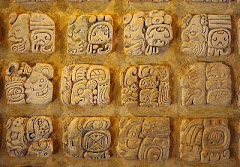
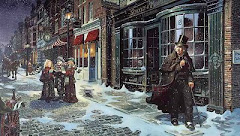


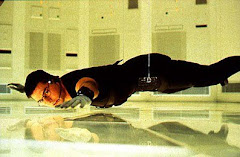
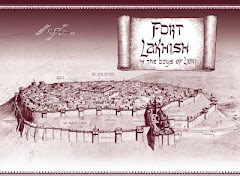



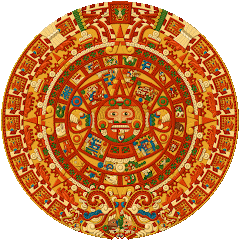
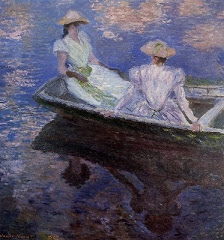
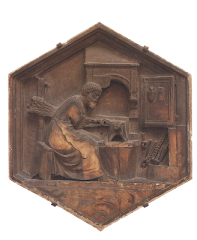

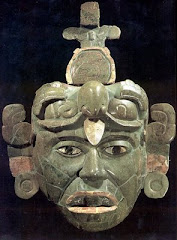



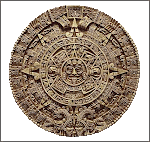

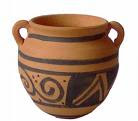
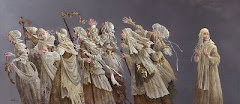
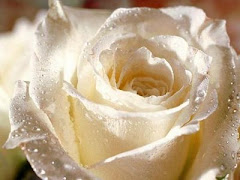


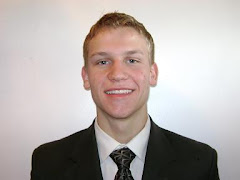
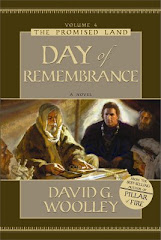


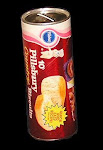
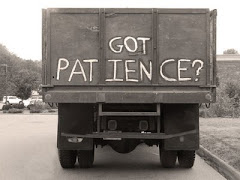
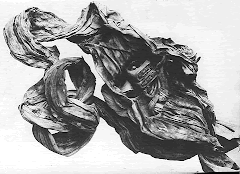
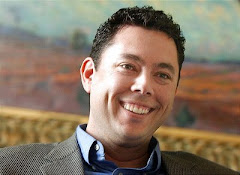

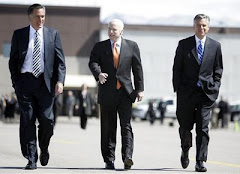

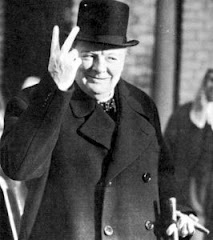
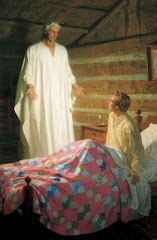
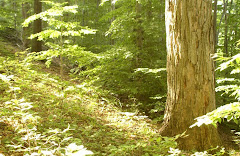

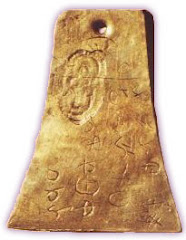


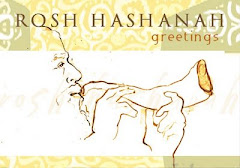

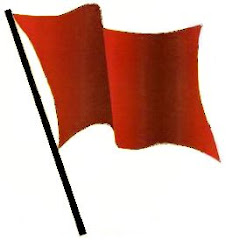
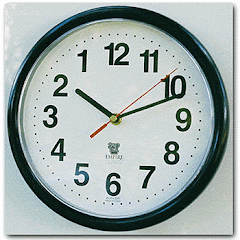
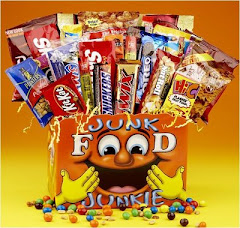
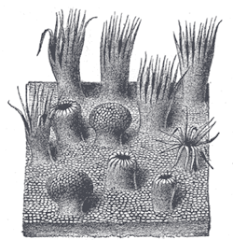
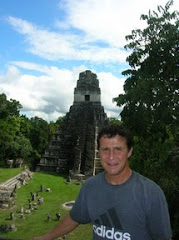


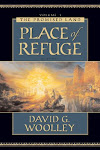
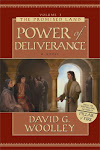

3 comments:
You know what I love about this passage? It shows us so clearly the boy the Joseph was. I get stuck with the Propeht Joseph in my mind and forge that he was a poor, mostly uneducated farm boy whose family struggled to just get by.
It also shows us how merciful is our Father. We can make the same mistake over and over and over and still we are forgiven and given another chance to become the person He sent us here, the person He knows we can become.
Hi Sandra:
What I like about the passage is that it shows normal, natural development from less knowledge to more, from less experience to more, from less understanding to more, from irresponsibility to responsibility. Aren't we talking about the same thing? Joseph Smith wasn't born a full-fledged revelation-receiving, scirpture-dictating, doctrine-knowing, leader-in-waiting prophet. He was a simple servant of God. Makes you apprecaite the scriptural verse that the weak things of the world will confound the wise. I like to think we are all weak. Then, at least, there is hope of us doing some kind of confoudning. Right?
All the best,
David G. Woolley
See, this is why I love your writing so much. Yes we are talking about the same thing, but you say it in such a better way.
Post a Comment